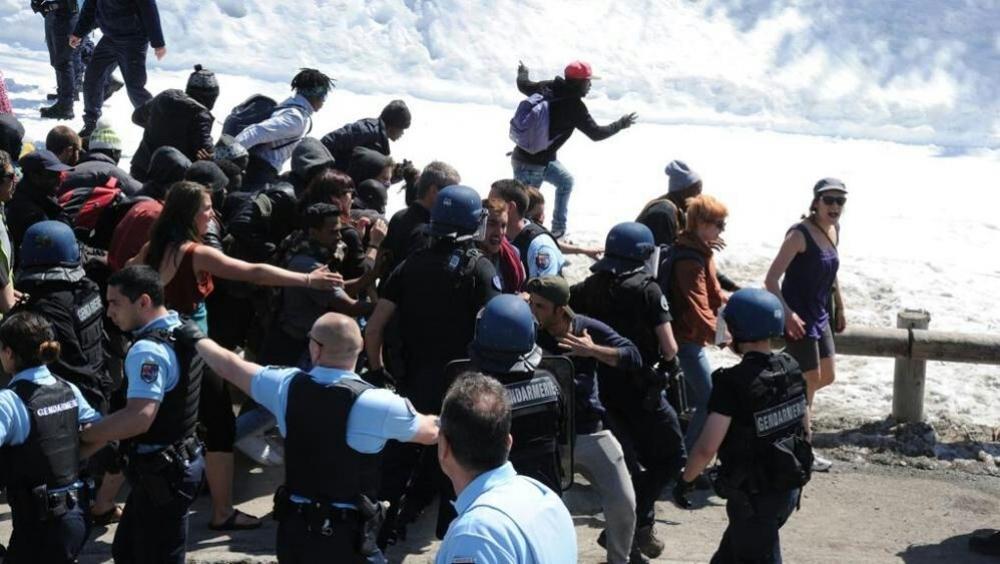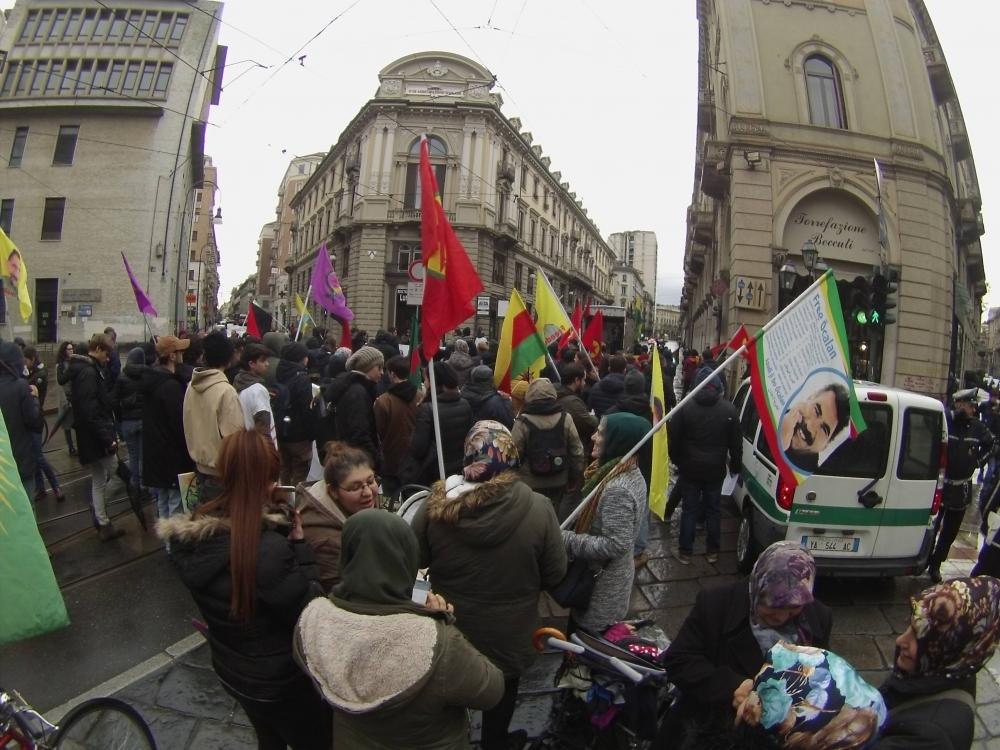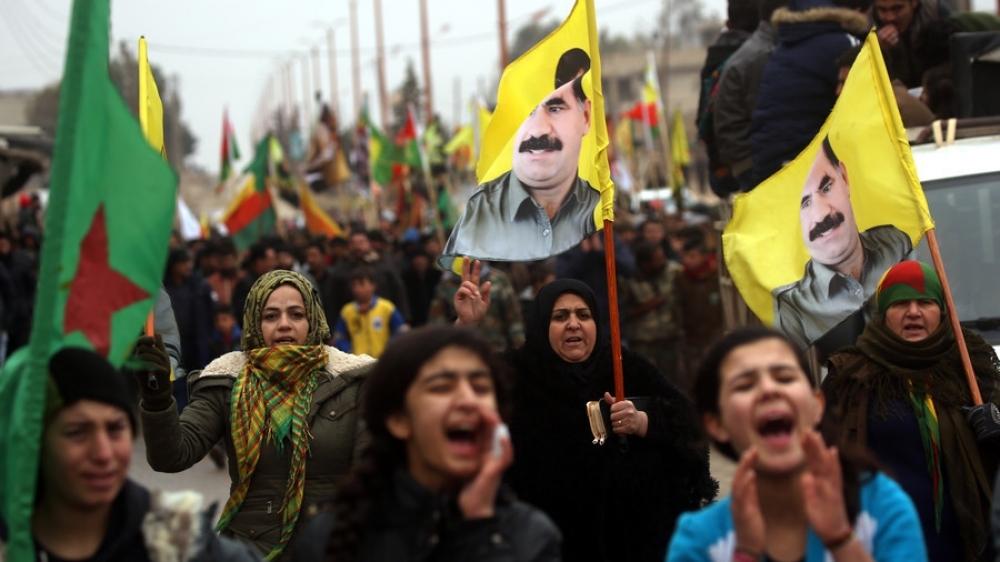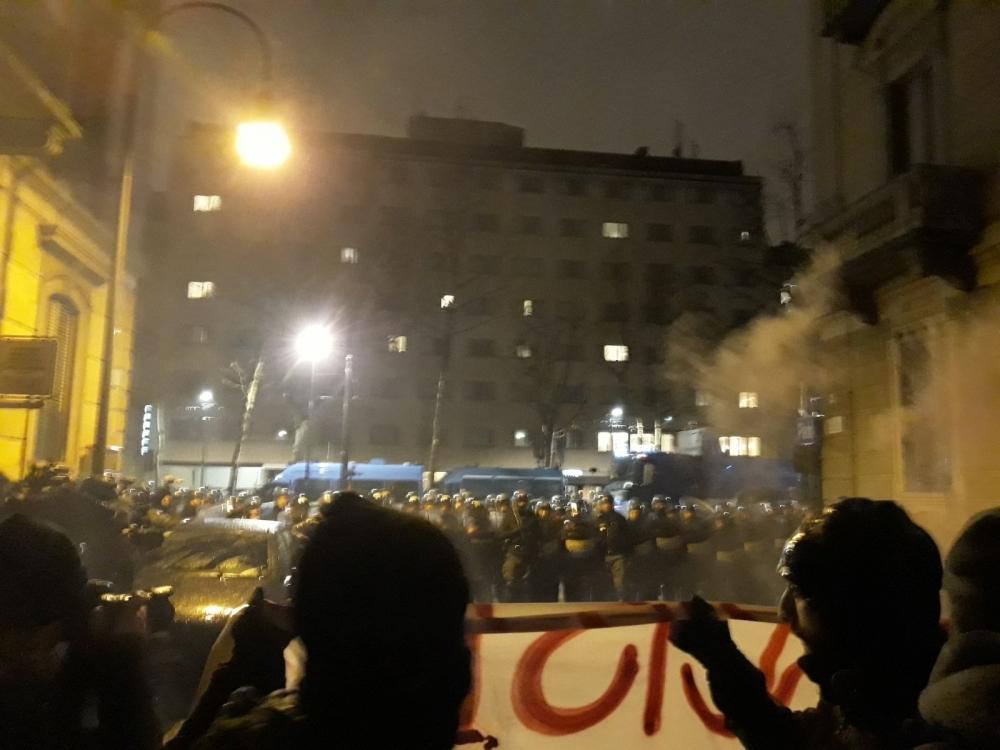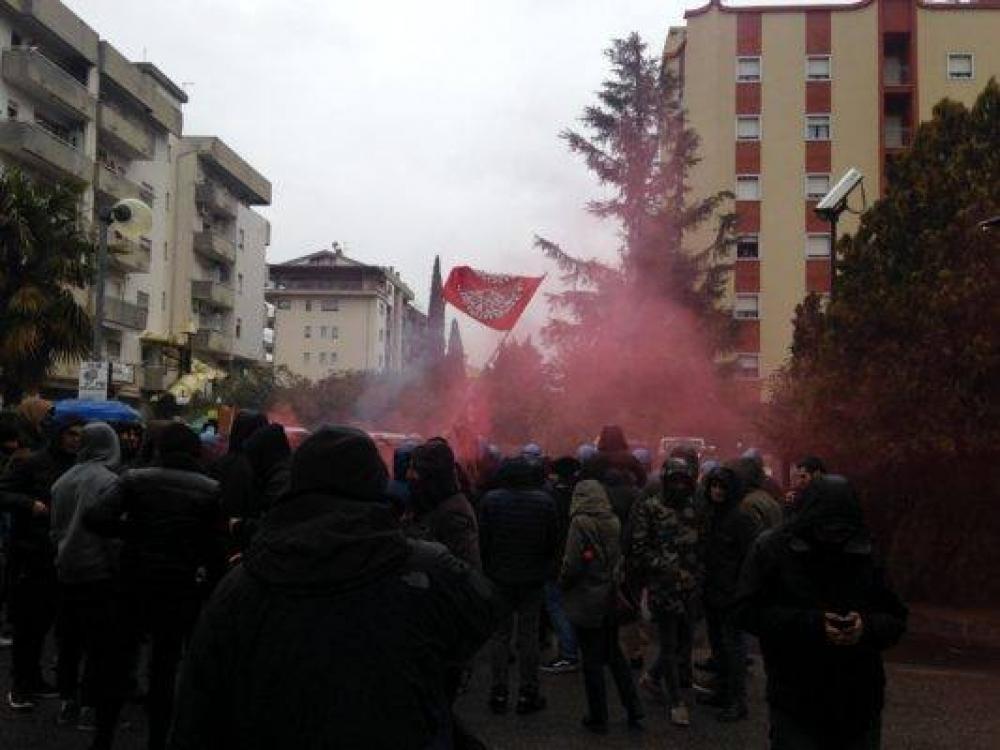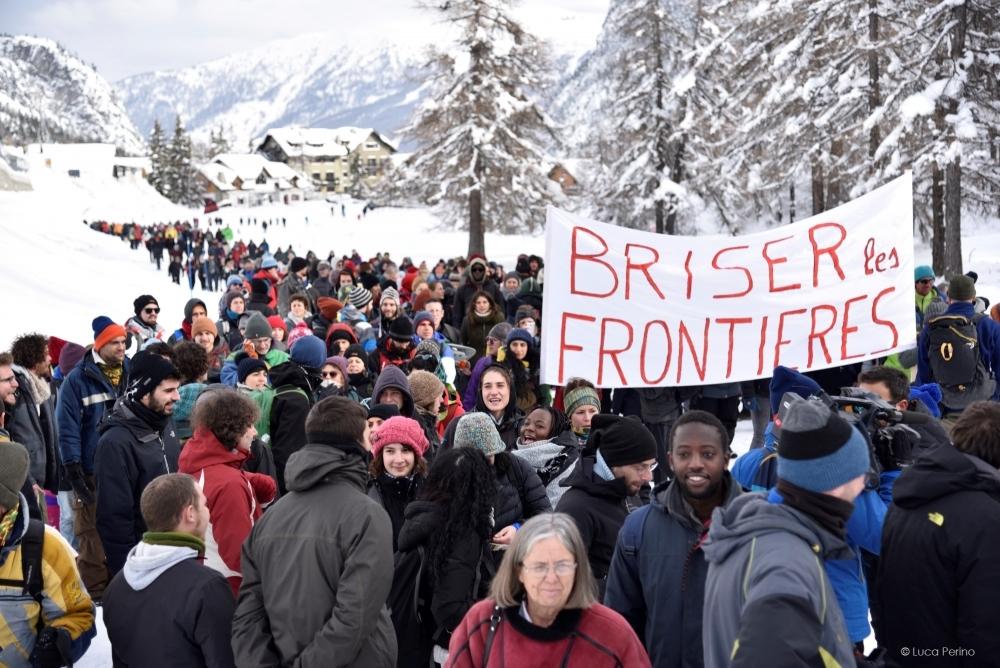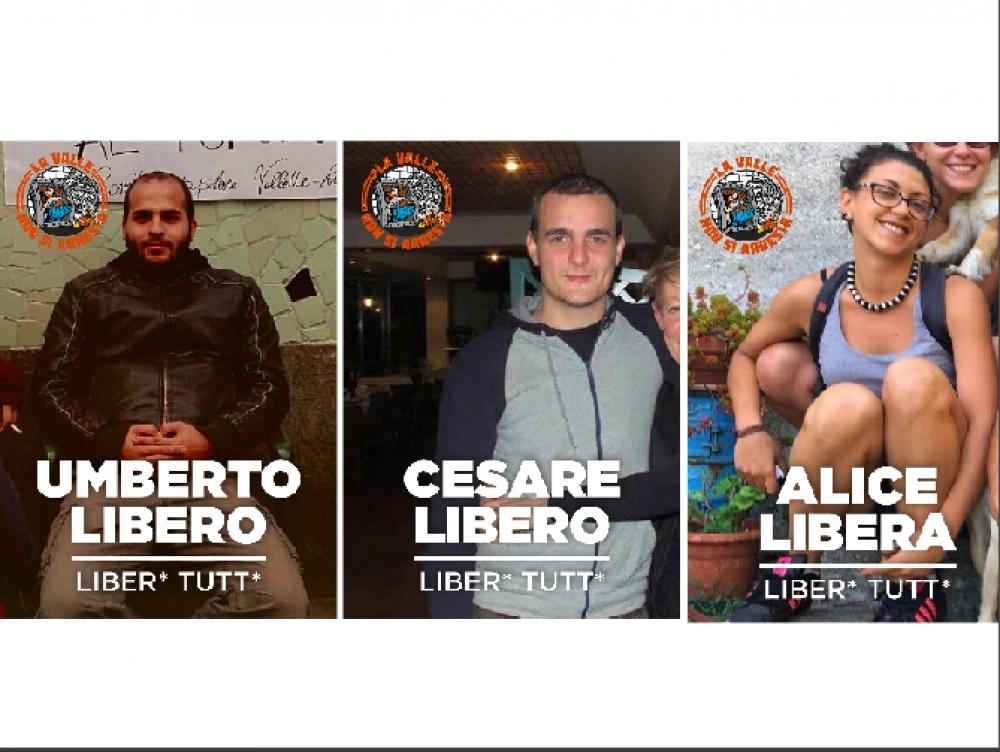The Modest Way
We publish the translation of this editorial collectively authored by Infoaut.org, a media reference portal of social centers, collectives, associations and individuals of the Italian autonomous area and the rank-and-file unionism, among the promoters of the day of social strike and uprising of October 19.
Its polemic targets are the old institutional left and parts of the movement (both political subjects now gathered under the umbrella platform la via maestra (“the main way”), which periodically attempt to arouse great movements of opinion and propose ephemeral coalitions and constituent processes of social subjects (actually, lacking adequate projectuality and social entrenchment) to exploit their boost with a view of Italian and European electoral terms; and trying an impossible reclamation of structures and dispositifs of the “public” and of representative democracy (such as the Italian Constitution, made obsolete by the historical evolution of subjectivities, means of production and governance). Tools which firmly stand, by now, in the hands of the single party of austerity.
A prompt and clear critic against the attempt by “la via maestra” of undermining the October 19 day of struggle – already set during the No Tav camp last July and confirmed by the international movements’ agenda – by calling up a demonstration in defence of Italian Constitution on October 12, follows here.
They called it “the main way“. And then, what is this self-styled way? The defence of the Costitution. Between many other things that we could make fun of, it is easy to start from the consideration that the left (or what does remains of it) does not stand out for imagination, of course. Probably, it is not even worth to talk about it, we have already seen this kind of operations and we will see countless others. On the contrary, the more the instiutional left reaches its end, like a shattering glass, the more the attempts to create some little huddles – each one of them delusionally thinking of having found a way to revive the corpse – multiply themselves. Anyway, some brief considerations could be useful, for three reasons: for the typical features of this initiative (typical of the corpse, that is), for the mistake in which it still persists, because in the next year some political elites, also coming from social movements, will probably direct their poor ambitions in such a context. Let us take one step at a time.
First, in this umpteenth coalition with a pretentious name (after the “rainbows“, the “new political subjects“, the “unities for the alternative“, the “change is possible” and the “civil revolutions“, the “main ways” could not be left out [1]) is embedded a thruthful picture of the corpse. Old faces, for what they say even before than their age. A strong feeling of defeat that these subjects bear like a second skin. An ontological lack of bravery, even in their thoughts before than in their actions. The inability to imagine anything more than the defence of something. Even worse, of something that does not exist anymore. In fact, the Constitution represents the must of the last years. At the very least, since politics are not conceived in those areas, they could address, as Erri de Luca rightly suggests, some good capable historian. He could easily explain to the “people of the left” (another ranting definition made in order to conceal their self-styled and gloomy delegates) how the Constitution of 1948 was nothing more than an answer against a Civil War, the necessary compromise to prevent the partisan struggle turning into a revolutionary disruption. Whether you like it or not, that formal Constitution is no more.
The material character of worker and proletarian struggles in the ’60 and ’70 threw it into crisis. Berlusconi came a lot later, and simply tried to elicit conclusions and advantages from that for his party [2]. Also here it is possible to realize the unfillable distance between the left and the new subjectivities. How could a precarious or an unemployed worker be interested in the article 1? Or what the article 34 means for a student without future? And whenever the article 11 has been able to prevent a war declared by imperialist forces? So, why a teacher without salary should care about the “main way”? [3]
The mistake in which they persist consists in this blunder named “European Syriza”. The aforementioned poor imagination of the official left makes it like if someone does things right, everyone else keeps thinking for years to having found the key of redemption.
But the import-export strategy is made for capitalist business, not for political patterns. We add that the unique result of Syriza is dued to a very particular background – the same that, on the other side of the institutional spectrum, led an obscure, little neonazist party to break the bank at the polls. Of course, these phenomenona are not to be underestimated, (for what it concerns to face and straighten out the neonazist abomination, above all), and it is no small feat either, politically speaking, to be in the right place at the right time. Yet, what is left today, just a year since the voting event, of the social entrenchment, the sorting out of transformation processes, the real presence in the struggles (if there actually was one)? This is the question that coalitions exporting the Syriza-model should make themselves. Among these, there is who – in a variation of the “main way” – proposes to write his own Constitution, a nice Chart of Dreams of the Europe We Want, because the idealism of the symbolic and the inconclusive abstraction (even if dyed by concrete opportunism) for their very essence and hubris ignore power relations. Here the tragedy gives way to the farce. Both are daughters of the defeat and the powerlessness, the only traits that are truly and relentlessy united in a coalition. Also in this case our meticuluos historian could easily show that in capitalism the only thing that matters is “the social power which every individual owns in his pocket”, that is the money hoarded in the ECB or in the strongboxes of the 1%. That is what we must collectively re-appropriate ourselves of, the wealth to be turned into income for the precarious and to free us from exploitation.
Finally: this is the year that – for some people – leads to the European elections. Here is the “main way” that really interests the self-styled delegates looking for voters, and those who swear of not wanting to make a party or to not be interested by the electoral deadline above all (as people say, excusatio non petita…). We are speaking about a mixture of bluffs, entrails, ex-activists, sad passions that recurrently captivate some political elites of the movement, to soon reveal themselves as illusions and then open, after a disastrous electoral aftermath, a sudden rediscovery of unrepresentability. About this all, really, it is not worth to spend other words. It gets more complicated when social projects are enticed in it – as some parts of occupied theaters are, for example – that in the last years were very significant components of the movements. That is not about cursing anyone, rather than actually – and leaving political elites out of the picture – opening up a real debate. No one is denying the problems of the struggles, and it is for this very reason that we think that every “shortest way” is nothing more than a blind alley. We must delve into the problems and try to understand them, plunge into them and at the same time fly higher, make inquiries and radically autonomous bets. This is the inescapable question to take on.
Therefore, October 12 will certainly be an important day, because there another main way will be set, an irreconcilable one with representative politics and a collapsing system: that which leads to the siege to austerity of #19o. Other ways lead directly to November 2, to mourn the dead ones.
Panta rhei os potamòs
[1] A reference to a series of electoral and institutional-leaning radical left cartels: the Rainbow Left, which put together historic green and communist parties, in addition to some movements’ political elites which was ultimately crushed and left out of parliament in 2008; the Uniti per l’Alternativa in 2010 which hoped to engage a leftist Italian metalworkers’ union (FIOM) into a broader political alliance, soon to be deluded by a rightist reapproachment of the latter to its mother trade union CGIL; the “Cambiare si Può” political platform in 2012 which failed to get rid of the old leftist parties’ mummies when building an electoral alliance; the “Rivoluzione Civile” in 2013, led by the public prosecutor Antonio Ingroia, which was yet again annihilated in the general elections.
[2] Berlusconi exploited and corrupted many actual demands of the social struggles of the sixties and the seventies (rejection of political and judiciary institutions, questioning of self-referential academic culture, sexual freedom, etc.) siphoning them off from their material context and reframing them through his media apparatus in a capitalist-libertarian way.
[3] Another reference to Italian Constitution articles: article 1 enshrines Labour as a pillar of the Republic, article 34 concerns the right to free and public education, article 11 forbids the institutions to wage war against other countries. It ends with an untranslatable pun, as in the original sentence a “maestra” (female teacher) without salary could not care less about the “via maestra” (main way) coalition of the old left.
Ti è piaciuto questo articolo? Infoaut è un network indipendente che si basa sul lavoro volontario e militante di molte persone. Puoi darci una mano diffondendo i nostri articoli, approfondimenti e reportage ad un pubblico il più vasto possibile e supportarci iscrivendoti al nostro canale telegram, o seguendo le nostre pagine social di facebook, instagram e youtube.












